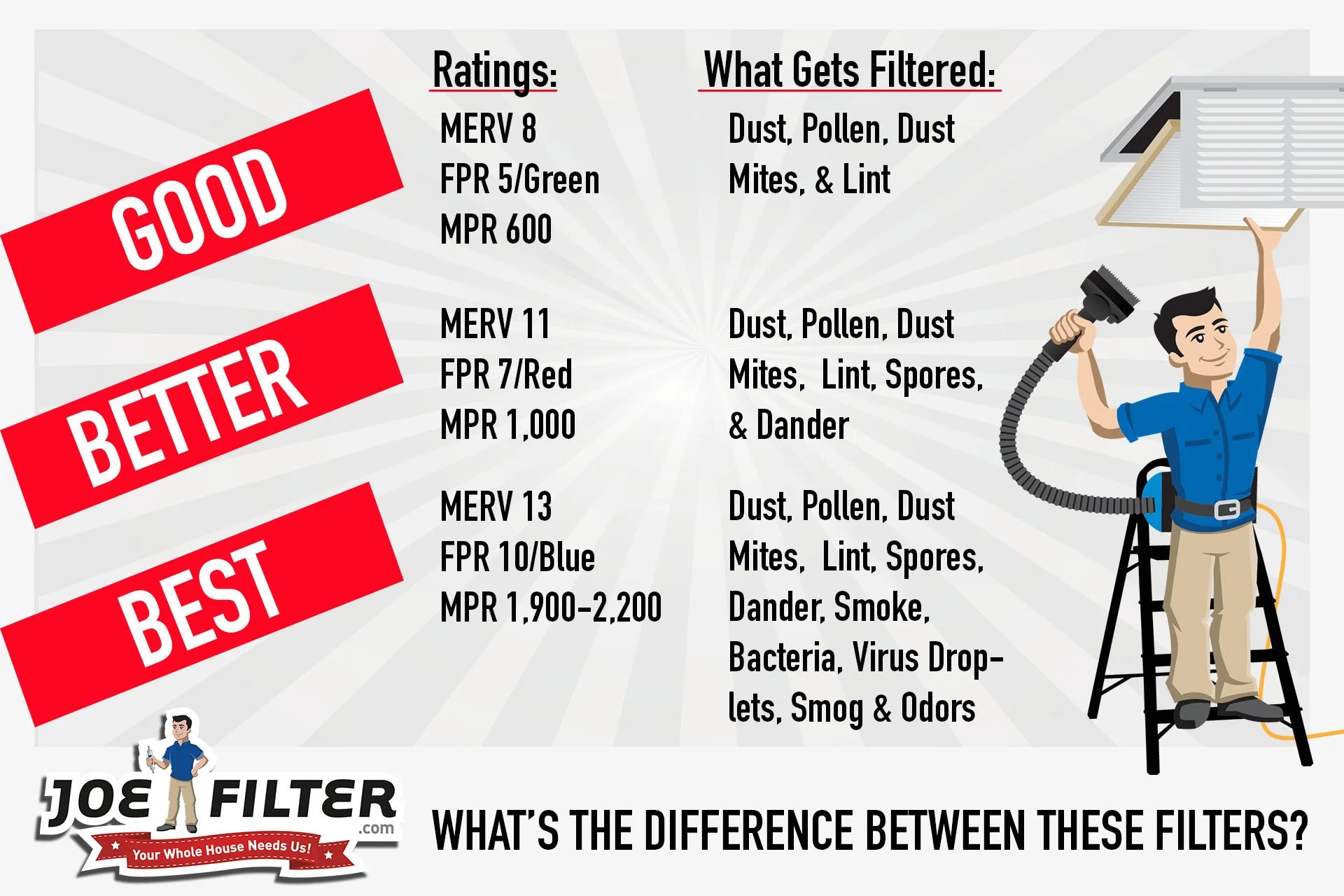How to Choose the Right Air Filter: A Simple Guide to MERV Ratings
When it comes to maintaining a healthy and comfortable home, it is important to be changing your air filter(s) regularly (monthly to quarterly). Your air filter is the first line of defense for your HVAC system, and has a direct impact on your home's air quality.
However, with so many options available, how do you know which air filter is right for you? The key is understanding the MERV rating.
What is a MERV Rating?
MERV stands for Minimum Efficiency Reporting Value. It's a standard measurement that indicates how effectively an air filter captures airborne particles. There are other proprietary rating systems out there as well, but they can be translated to MERV. The MERV scale typically ranges from 1 to 13 + for residential filters, and the higher the number, the more particles the filter can trap.
Think of it this way: a higher MERV rating means a more efficient filter. While this is great for air quality, it's crucial to find the right balance for your home and HVAC system. Using a filter with a MERV rating that is too high for your system can restrict airflow, making your system work harder and potentially leading to damage. We always recommend never going lower than a MERV 8 for your home however. As it does not restrict the air enough to cause any issues with modern systems, and lower than an 8 does not offer much protection at all.
Finding the Right MERV Rating for Your Needs
The best MERV rating for your home depends on a few factors, including your household's health needs, the presence of pets, and the age of your HVAC system. Here's a quick breakdown of common MERV ratings and what they're good for:
MERV 8: This is a great all-around filter for homes. It's effective at capturing larger particles like pollen, dust, and pet dander. If you have no specific health concerns, a MERV 8 filter is a solid choice that provides a good balance between air filtration and system efficiency.
MERV 11: If you have pets or a family member with mild allergies, a MERV 11 filter is a step up. It's designed to capture smaller particles like pet dander, dust mites, and some bacteria, providing a noticeable improvement in air quality for those with sensitivities.
MERV 13: For individuals with severe allergies, asthma, or other respiratory conditions, a MERV 13 filter is often the best choice. This high-efficiency filter captures even smaller particles, including tobacco smoke, bacteria, and other contaminants. It's particularly beneficial in homes with smokers or in areas with poor air quality.
When choosing a higher MERV rating, it's always a good idea to check your HVAC system's manual to ensure it can handle the increased airflow resistance.
The Takeaway
Regularly changing your air filter is one of the easiest ways to improve your indoor air quality and keep your HVAC system running efficiently. By understanding MERV ratings and choosing the right filter for your home, you can ensure a cleaner, healthier environment for everyone.

